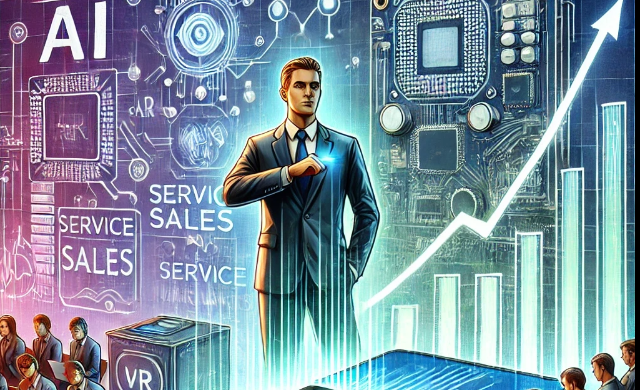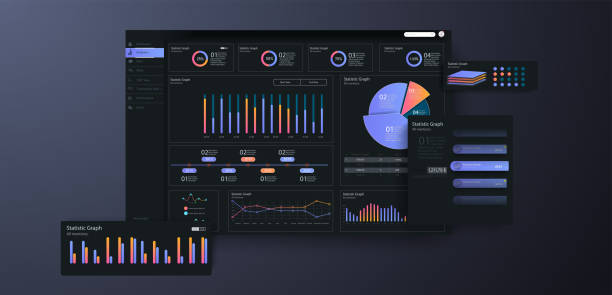When Apple sent out their fiscal Q2 earnings report on May 2nd this year, traders saw that
earnings-per-share exceeded their estimates and elected to buy the stock, driving share
prices up by 6%.

CEO Tim Cook was “very optimistic” about the company’s trajectory in
general and, in particular, reiterated his view that Apple is “well positioned” in the AI market.
The backdrop behind these rosy-sounding words was Q1 2024: a quarter when the
company’s most important product – the iPhone – was battered by a 19% drop in sales in its
key Chinese market. The guilt party was, to a large extent, Huawei, who have been
aggressively grabbing smartphone market share since August 2023. By April 2024, Huawei’s
share was actually almost equal with Apple’s. Huawei phones, which carry a new chip
produced entirely on home Chinese soil, forced Apple, in January, to hand out unusual
discounts in order to lure customers in. Ivan Lam of Counterpoint says it’s undeniable that
“Huawei’s comeback has directly impacted Apple”.
We see this impact in the markedly weak performance of Apple shares this year. By the start
of May, Apple stock had lost 10%, which should be viewed in the light of the 3.9% gains for
the tech-focused Nasdaq 100 index. This kind of underperformance of the greater index had
not happened for more than ten years. Looking ahead, are there reasons to expect things to
improve for the iconic American tech giant, or are their problems more deeply rooted than
that?
Lagging Behind in AI
Contrasting with Apple’s share losses, Microsoft Corp. and Alphabet Inc. enjoyed a time in
the sun between January and May. Analysts say the vital ingredient in their appeal has been
their poise in relating to AI demand, which has been felt to be lacking on Apple’s part. This
issue has combined with other factors to turn some people downright negative on apple
share trading. “[Apple] can’t substantiate growth; it doesn’t have a killer AI strategy; and it
isn’t even cheap”, remarked Daniel Morgan of Synovus Trust in early May. Still, Apple are
doing something to remedy the situation: negotiating the introduction of AI features onto the
iPhone with Alphabet and OpenAI. They’re also drawing their Macs deeper into the AI realm.
Tailwinds
Between 2012 and May 2024, Apple spent a massive $650 billion on share buybacks, which
is a method of holding earnings steady. In the company’s May announcement, they
promised to pay out another $110 billion for this purpose – a historically high figure.
A highlight of Apple’s earnings report was their services segment, which recorded sales
growth of 14.2%. The company claims to hold over a billion paid customer subscriptions.
Mac sales saw growth of 4%, powered by the new MacBook Air models. And then there’s
Apple’s brand-new product category: virtual reality headsets under the name of Vision Pro.
These aren’t yet bringing in the big bucks but “We’re only scratching the surface”, says
Cook, who “couldn’t be more excited about our opportunity there”, which he sees as
extending as far as the health care industry.
Q2
Overall revenue in the tech sector is expected to jump 8.6% in Q2 2024 but, for Apple, it
could be a very different sort of quarter: one of 5% losses. In general, economists’
expectations of Apple are very muted for the quarter ending in June. In the opinion of Daniel
Morgan, it isn’t just a situation of waiting out a troublesome period because, “Until [Apple]
finds a way to reignite growth, I think the stock could be stuck in the mud”. On the other
hand, there are those, like Bernstein, who view the company’s China concerns as “more
cyclical than structural” and urge traders to buy the stock. One positive voice on Apple share
trading has been Wells Fargo, who anticipate prices will climb as high as $225.
Wrapping Things Up
Scaling out to the macro level, Apple is facing off against a higher-for-longer interest rate
environment that could hold back growth stocks. The company is also dealing with the
lawsuit brought against it by the US Department of Justice, who accuse Apple of unfairly
controlling the smartphone space by means of the contracts they establish with app
developers. This may turn wary traders off Apple stock, especially if the court’s judgement
turns against Tim Cook’s company.

 Hot Features
Hot Features













